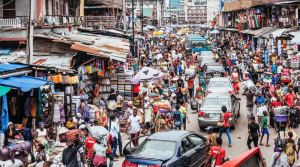
Author: Raheem Mutiyat Oreoluwa | raheemoreoluwa832@gmail.com
Even though child abuse is widely acclaimed as a global phenomenon, developing countries, especially in Africa have records of the largest abuse of children in history. Published on July 2022, studies by APEVAC found out that more than half of all children in Africa experience physical abuse, while in some parts of the continent, four in 10 girls suffer from sexual violence before the age of 15. In addition to, the studies found that eight out of 10 children aged 1-14 experience violent discipline every month.
In Nigeria, 66% of girls and 58% of boys under 18 witness violence in the home. Child abuse manifests in various forms; sexual instances of child abuse include sexual abuse and child marriage, female genital mutilation, molestation while non-sexual forms include emotional and psychological abuse, kidnapping, child labour, child neglect and physical abuse. Wars, violent conflicts and genocides are also cases of abuse against children. In fact, they are one of the greatest crimes against humanity.
While several studies and initiatives have been devoted to the abuse of women and under-represented groups in the society, the maltreatment of children is poorly depicted. The absence of adequate statistics and up-to-date information on the issue is an evident indication of their poor representation. As cited in The Cable, “There is an extreme weakness of child protection systems in Nigeria,” Child Protection Hub (CPHub), a children’s right non-governmental organization says in it’s report of a survey it conducted with the NOIPOLLS, a research organization.
According to UNICEF Nigeria; of the children who reported violence, fewer than five out of a 100 received any form of support. In addition to that, there is poor enforcement of the numerous policies and laws put in place by the government to safeguard the interests of the Nigerian child.
Traditional norms and religious precepts have continued to be the largest enablers of the abuse of children in many Nigerian communities. As a form of training and upbringing, children are mandated to respect and obey all elders, including their parents. Any child that shows resistance is beaten to instill discipline. The biblical “spare the rod and spoil the child” are inherently used to justify such discipline; without teaching them any form of peaceful conflict resolution. Likewise, there are many cultural values and practices that are harmful to children, especially girls. Early marriage and female genital mutilation are few of manifestations of these cultural beliefs.
External efforts to curb these practices have not been really successful, due to their being deeply engrossed in customs. Poor orientation is another factor behind child abuse. Child abuse is not discussed about enough and many are ignorant that some of their perceptions and actions towards children might be abuse. Severe economic conditions also factor in “child bride” in some households; where the parents marry off their girl child in exchange for monetary value and also to decrease the family size. Poverty and lack of financial stability can cause some parents to hand the care of their children to relatives or friends, who might not really mean well for them.
Most of the times, these children are maltreated, exploited for labour and even fall victims of child trafficking. From minor bodily harm, major infliction, strained relationships, to lifelong trauma and
disruption of mental health, child abuse poses a serious threat to the Nigerian child, who is apparently a “leader of tomorrow” and hence, must be seriously addressed.
In this regard, this article seeks to implore an urgent call to action in mitigating child abuse in the Nigerian society; starting with orientation on child abuse starting especially from the grassroot, which is the family, across all Nigerian societies. Individuals should collaborate with the government and NGOs in the initiative against child abuse, to progress into a society where the voices of children are heard, where they are not mis-treated, with their interests and rights justified.
REFERENCES
APEVAC. (2021). New Data Shows that Violence Against Children is Rising across the African
Continent. Retrieved from https://www.end-violence.org/articles/new-data-shows-violence-
against-children-rising-across-african-continent on December 29, 2023.
Ogechi Ekeanyanwu. (2018, January 11).). Child Abuse Largely Unreported in Nigeria. The
Cable. Retrieved from https://www.thecable.ng/child-abuse-largely-unreported-nigeria on
December 29, 2023.
Olusegun Olaitan O. and Idowu, Amos A. (2016) “Child Abuse in Nigeria: Dimension, Reasons
for it’s Persistence and Probable,” child and family law journal. Retrieved from
https://lawpublications.barry.edu/cflj/vol4/iss1/2/ on January 2, 2024.
UNICEF for every child. (2023). The Challenge. Retrieved from
https://www.unicef.org/nigeria/child-protection on January 2, 2024.


